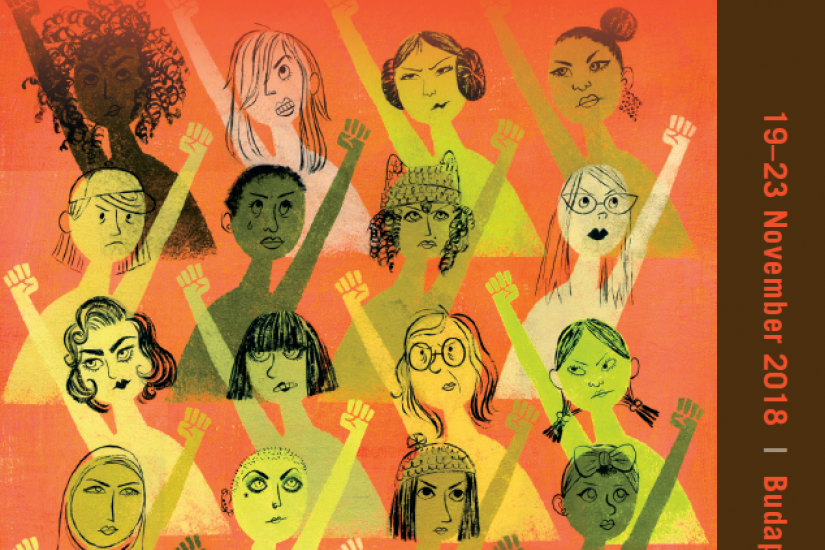
Background
In its 2018 World Drug Report, UNODC acknowledged that the supply and use of illegal ‘narcotic’ drugs is now at historic highs, raising questions as to the sustainability and utility of criminalization approaches. Within the dynamic picture of ongoing drug market growth, the gendered impacts of both the drug trade and counternarcotic policies remains under analyzed, most particularly as this relates to women and girls.
International and national-level drug policy institutions have been tardy in their uptake and mainstreaming of gender sensitive approaches in the design, implementation, monitoring and evaluation of drug policy. Similarly, drug policy scholarship has marginalized women’s engagement with drugs and the drug trade, or conversely, portrayed women as passive, as victims and without agency. This speaks to the need for increased awareness of gendered dimensions and impacts, understanding the multiple lived experiences of women from an intersectional perspective, and training on gender sensitivity in the drug policy reform, advocacy and academic “community”.
Conversely, organizations involved in women’s and feminist advocacy in areas that include health, criminal justice, development and fundamental rights, have neglected to effectively engage with drug policy, the regressive impact of criminalization and enforcement practices on women and girls, or drug policy reform as a women’s “issue”.
In the immediate context of upcoming high level meetings on drug policy and on the Sustainable Development Goals in 2019, as well as the continued underperformance of international drug policy, the four-day professional short course “Understanding the Gendered Impacts of Drug Policy” presents an excellent opportunity for policy professionals, advocates and academics to analyze and reflect on best practices, lessons learned and methods for improved gender inclusivity.
Participants' Profile
The course builds on our extensive record of high quality teaching and training on drug policy, policy analysis and evidence-based policy design and evaluation. It is aimed at promoting understanding, sensitivity and awareness of drugs and drug policy on the global, racial, class and sexual diversity of women. We encourage applications from individuals who can contribute to interdisciplinary, inter-regional and international experience sharing and collaboration and highlight here:
- Civil society groups and leaders engaged in analysis, oversight, and policy advocacy;
- Government officials (central, local and municipal) involved in public policy design, implementation, and compliance;
- Professional staff from international organizations and development agencies;
- Academics, journalists and doctoral students;
- Political party, trade union and other organizations advocating for the fundamental rights of women and girls.
Course Information
The course will be held at the School of Public Policy, on the campus of the Central European University in Budapest, Hungary.
The full cost of participation in the course is EUR 850. This does not include travel and accommodation (lunches and coffee breaks during the course will be provided). A limited number of scholarships covering travel, accommodation, and the full cost of tuition are available on a competitive basis. In addition, a number of tuition waivers will be available for applicants who cover their own travel and hotel accommodation. Note that scholarships or tuition waivers will not be available for applicants from the private sector or international agencies.
Interested individuals should complete the application form available on the course’s website at https://spp.ceu.edu/drug-policy-reform by 16 September 2018.
Course Program
Our courses typically attract engaged applicants who are keen to share, learn and develop and diversify their networks. We provide a “safe” and supportive learning environment, in which knowledge gaps and cognitive prejudices can be identified and discussed, and in which all participants feel confident and comfortable in both challenging ideas and contributing their experiences and reflections. We draw on experienced practitioners and academic faculty and promote working-group-based learning alongside more traditional lecture and discussion formats.
19 November 2018: Arrival and dinner reception
20 November 2018: Understanding global drug policy: historical foundations; policy approaches and institutions; contemporary drug market trends (consumption, production and trafficking); evaluating the record of drug control; bias and distortion in drug policy implementation.
21 November 2018: Policy analysis, design and evaluation; stakeholder engagement; identifying and measuring policy impacts; understanding gender and conflict sensitivity; evidence and rights based approaches; “do no harm”. The challenge of researching illegal economies and stigmatized communities. Women, gender and mutually constitutive aspects of identity; women’s rights and women’s “issues”; approaches to analyzing and mitigating gendered policy impacts.
22 November 2018: What do we know about women and drugs? Consumption trends and dynamics among (the global diversity of) women; women and drug use (problematic, medicinal and recreational); service access and impediments. Women in drug crop cultivation and drug production chains; identifying enforcement impacts—women and the criminal justice system.
23 November 2018: Is drug policy a women’s/feminist issue? Homogenization and normative assumptions (race, class and sexualities); Gender sensitizing drug policy; advocating for change and evidenced based approaches.
Faculty (TBC)
- Julia Buxton, CEU School of Public Policy
- Judy Chang, International Network of People who Use Drugs
- Corina Giacomello, Autonomous University of Chiapas, Equis: Justice for Women and The Mexican Institute for Justice
- Ian Hamilton, University of York
- Julie Hannah, International Centre on Human Rights and Drug Policy
- Fiona Macaulay, University of Bradford
- Giavana Margo, CEU Global Policy Academy